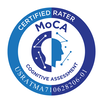Link to original report
|
Global Research.org has a report which raises concerns about medication induced mitochondrial damage contributing to risk for dementia. While both recreational and prescription drugs can cause brain damage which can in turn exacerbate the symptoms of AD without being causative it is important to note that chemical-induced dementia (a.k.a., drug-induced dementia) often presents with a pattern of neuropsychological deficits that are different than those seen in AD including a lack of clinical progression of the dementia following cessation of exposure. By contrast AD is a neurodegenerative disease and as such, it progresses relentlessly in the absence of exposure to any recognized chemicals neurotoxicants.
Link to original report
0 Comments
3,4-Methylenedioxymethamphetamine (MDMA) commonly known as ecstasy as the chemical name reveals is an amphetamine. A recent story by Alex Pham that appears in BillBoard highlights the risks associated with the use of these drugs. "The most pernicious long-term effect is brain damage. Because MDMA has only been in popular use as a recreational drug since the mid-'80s, researchers are just starting to understand how it affects the brain in the long-term. But there’s increasing evidence to support the likelihood that chronic use of ecstasy causes lasting brain damage. IIf there’s too much neurotransmitters for the body to handle in the way it typically metabolizes those chemicals, the body uses a secondary pathway,” one that can leave toxic metabolites that accumulate over time, said Dr. Jeffrey Lieberman." In fact, a recent study showed that adults who use illicit amphetamines are at increased risk for developing symptoms of parkinsonism and that this is due to damage to the substantia nigra (a brain region known to be involved in idiopathic PD) (Todd et al., 2016).
Link to original news article Link to Todd et al., 2016 |
AuthorDr. Marcia Ratner shares and reviews the news. Archives
February 2023
Categories |
 RSS Feed
RSS Feed

